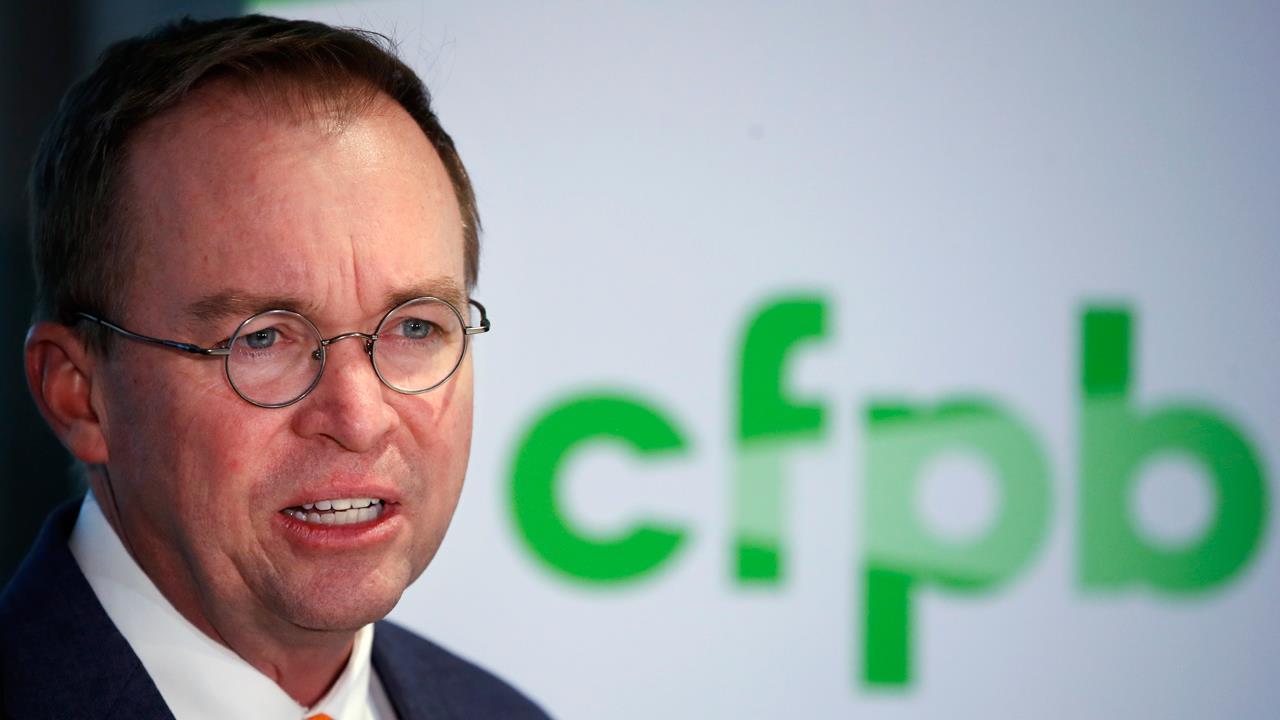Why Consumer Financial Protection Bureau's structure is a real threat to small business, individual liberty
If the Supreme Court upholds the CFPB’s current structure, it will invite Congress to create new “independent agencies” with czars calling all the shots
The DNA of our Constitution, through defined separation of powers between three, co-equal branches of government, reflects a deep skepticism of centralized power. Often these three branches are in friction with each other, each defending their institutional interests. But the ultimate decider is “We the People.”
A government that is accountable to the people, rather than enshrined in one single person or entity, remains a source of pride and identity to most Americans.
CFPB STRUCTURE CHALLENGED IN SUPREME COURT PETITION FILED BY PAYDAY LENDER
Like all Americans, small businesses are chromosomes critical to the “makeup” of America’s DNA and comprised of people wanting to simply create and run a business on their own terms. They are leery of unchecked government power that inevitably leads to more federal regulation.
Along those lines, my organization, the NFIB Small Business Legal Center filed a brief with the Supreme Court arguing that the current structure of the Consumer Financial Protection Bureau (CFPB) violates the separation of powers as set forth in the Constitution and, consequently, represents a grave threat to individual liberty and the interests of the small business community.
CONSUMER FINANCIAL WATCHDOG ABANDONS NAME CHANGE PLAN
In 2010, during the height of the Great Recession, then-President Barrack Obama signed into law a controversial set of economic reforms aimed at reining-in Wall Street. The statute, known as Dodd-Frank, established a centralized federal agency, vested with broad authority to regulate business in the name of "consumer protection." To that end, Congress gave unprecedented powers – authority to implement and enforce 19 consumer protection laws -- to the newly created CFPB.
Like other so-called “independent agencies” (e.g, the Federal Communications Commission (FCC) or the National Labor and Relations Board (NLRB)), the CFPB is distinct from traditional executive branch agencies. Federal agencies are usually run by a presidentially appointed official who is accountable to the president. Independent agencies are unaccountable because their governing officers -- typically governed by a board or commission comprised of appointees from both political parties -- cannot be removed once installed.
GET FOX BUSINESS ON THE GO BY CLICKING HERE
But the CFPB is different. Its power resides in one person – a single director charged with implementing and enforcing 19 laws and accountable to no one. In fact, the CFPB – unlike any other agency “independent” or otherwise – isn’t even required to go to Congress for the money it needs to operate. Rather, it generally receives its funding through the Federal Reserve.
On March 3, the Supreme Court of the United States will hear arguments in Seila Law LLC v. CFPB. The case concerns whether the CFPB is structured in a way that violates the separation of powers in the Constitution by ceding the implementation and enforcement authority of nearly two dozen laws to a single director.
While the Supreme Court generally has upheld the constitutionality of independent agencies over the years, the CFPB is another matter.
In 2016, Brett Kavanaugh, then sitting as a judge on the D.C. Circuit Federal Court of Appeals, authored a dissent in the case of PHH Corp. v. CFPB. In it, Judge Kavanaugh argued that the CFPB, under a single director, “wields enormous power over American businesses, American consumers, and the entire U.S. economy.”
Although the D.C. Circuit upheld the CFPB as constitutional in its current form, things have changed since then. For one, Brett Kavanaugh has been elevated to the U.S. Supreme Court.
If the U.S. Supreme Court upholds the CFPB’s current structure, the decision will invite Congress to create new “independent agencies” with czars calling all the shots. Such a regulatory regime would result in a government unaccountable to the people. And that’s not in America’s DNA.
Karen R. Harned is Executive Director of the National Federation of Independent Business Small Business Legal Center.




















